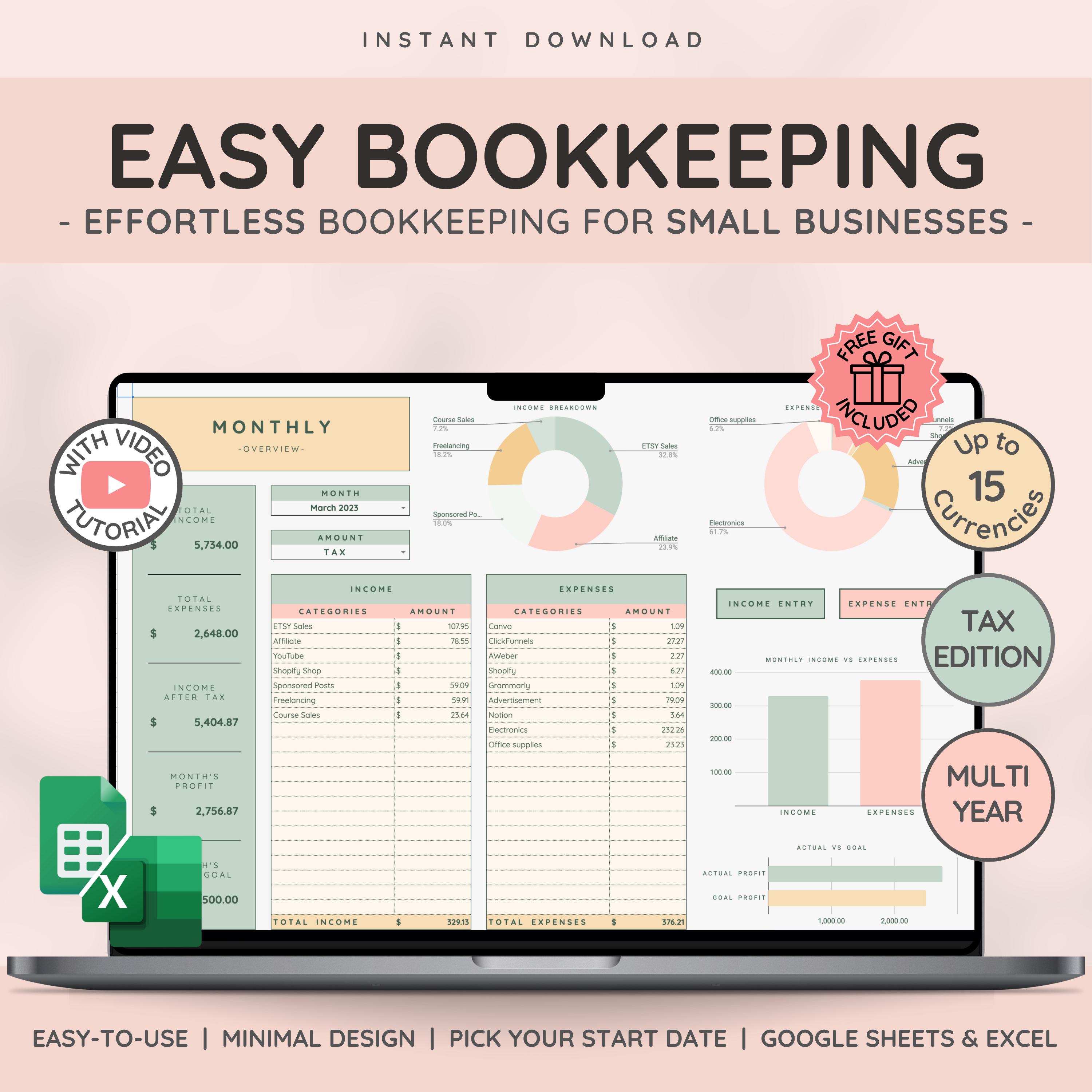How Bookkeeping Calgary prevents costly financial errors
Exploring the Trick Duties of an Expert Accountant in Financing
The function of a specialist accountant is essential in the domain of finance. They are tasked with maintaining precise economic records, handling accounts payable and receivable, and guaranteeing conformity with economic laws. In addition, their obligation prolongs to preparing economic declarations and records. Each of these obligations adds to the financial health of an organization. However, the subtleties of their work often go unnoticed, raising inquiries concerning the impact of their experience on wider monetary techniques.
Preserving Accurate Financial Records
Maintaining exact economic records is a vital obligation for professional accountants. This job needs careful focus to information and a comprehensive understanding of monetary principles. Accountants are accountable for recording all financial deals, making sure that data is recorded consistently and properly. They utilize various accountancy software program and devices to enhance the recording process, which boosts performance and minimizes the threat of errors.
Normal reconciliation of accounts is essential, allowing accountants to identify inconsistencies and remedy them quickly. By preserving organized and updated documents, they supply useful understandings into the economic health and wellness of a company. This duty also encompasses the preparation of economic declarations, which act as a substantial resource for management decision-making. Ultimately, the accurate economic records preserved by bookkeepers sustain conformity with governing needs and foster depend on amongst stakeholders, thereby contributing to the total success of the business.

Managing Accounts Payable and Receivable
Effectively handling accounts payable and receivable is an important aspect of a bookkeeper's function, guaranteeing that an organization's money circulation stays healthy. This duty entails monitoring outgoing and inbound payments, which enables timely invoicing and collections from customers while likewise assuring that the organization fulfills its financial commitments to vendors and vendors.
Accountants need to preserve accurate documents of billings, settlement terms, and due days, helping with efficient interaction with creditors and customers. By keeping track of these accounts, they can determine inconsistencies or overdue accounts, enabling proactive measures to solve issues before they intensify.
Furthermore, an accountant's role consists of integrating accounts to ensure that all financial deals align with financial institution declarations and inner documents. This persistance not only boosts economic openness yet likewise sustains tactical economic preparation, allowing the company to designate sources successfully and keep a robust financial placement.
Guaranteeing Compliance With Financial Laws
While guiding via the facility landscape of economic laws, an accountant plays a vital function in making sure an organization complies with lawful criteria and standards. This obligation consists of remaining updated on changes in tax obligation legislations, compliance demands, and industry-specific guidelines. Bookkeeping Services Calgary. By diligently tracking financial purchases and preserving precise documents, the bookkeeper assists prevent violations that could lead to fines or lawful issues
Additionally, the accountant checks inner controls to secure against scams and mismanagement. They implement treatments that advertise transparency and responsibility within the financial structure of the organization. Collaboration with auditors and governing bodies even more strengthens conformity efforts, as accountants provide essential documents and assistance during evaluations.
Inevitably, the dedication to compliance not just protects the organization yet also enhances its reliability with stakeholders, cultivating count on and security in its financial methods.
Readying Financial Statements and Reports
Preparing monetary declarations and reports is a crucial job for bookkeepers, as it gives stakeholders with a clear introduction of an organization's monetary health. Best Bookkeeping Calgary. These papers, which normally include the annual report, revenue declaration, and capital declaration, sum up the financial activities and position of the business over a specific period. Bookkeepers meticulously collect, document, and arrange monetary data to guarantee accuracy and compliance with appropriate bookkeeping requirements
The prep work process involves resolving accounts, validating transactions, and adjusting entries as required. Through this complete strategy, accountants aid guarantee that financial statements reflect real state of the organization's financial resources. In addition, timely preparation of these reports is necessary for reliable decision-making by administration, financiers, and governing bodies. here By offering exact and clear financial paperwork, accountants play an essential role in maintaining transparency and trust fund within the economic ecological community of the company.
Giving Financial Insights and Evaluation
Accountants evaluate financial data to offer useful understandings that notify calculated decision-making within an organization. By carefully evaluating trends in earnings, expenditures, and cash money flow, they assist identify areas for improvement and highlight potential risks. Bookkeeping Calgary. These understandings allow management to designate sources better and adjust service approaches accordingly

In addition, by leveraging monetary software application and analytical devices, accountants can provide data in a clear and understandable format, making it less complicated for decision-makers to realize intricate financial issues. Ultimately, the understandings originated from a bookkeeper's analysis encourage companies to make informed choices that boost success and drive development.
Frequently Asked Inquiries
What Software Application Tools Do Professional Accountants Commonly Utilize?
Professional bookkeepers commonly use software program devices such as copyright, Xero, Sage, and FreshBooks. These applications enhance financial administration, facilitate accurate record-keeping, and improve reporting capabilities, enabling for efficient handling of monetary purchases and data analysis.
How Does a Bookkeeper Differ From an Accountant?
A bookkeeper primarily takes care of daily monetary purchases and record-keeping, while an accounting professional examines monetary data, prepares declarations, and offers strategic guidance. Their roles match each other yet focus on unique elements of monetary administration.

What Credentials Are Called For to Come To Be an Accountant?
To come to be an accountant, people generally require a secondary school diploma, effectiveness in accountancy software program, and expertise of standard audit concepts. Some might pursue qualifications or associate degrees to boost their credentials and job leads.
How Usually Should Financial Records Be Upgraded?
Financial documents should be upgraded routinely, ideally on a regular or everyday basis, to guarantee precision and timeliness. This practice permits reliable tracking of monetary activities and sustains notified decision-making within the organization.
Can an Accountant Assist With Tax Preparation?
Yes, an accountant can assist with tax obligation prep work by organizing financial records, guaranteeing exact paperwork, and giving required reports. Their experience assists simplify the process, making it less complicated for tax experts to total returns efficiently.
They are charged with keeping precise monetary documents, managing accounts receivable and payable, and making sure conformity with monetary policies. Preparing economic statements and records is a vital job for accountants, as it gives stakeholders with a clear summary of an organization's economic health and wellness. With this extensive technique, bookkeepers assist guarantee that economic declarations mirror the real state of the organization's funds. By leveraging financial software and analytical devices, accountants can offer data in a comprehensible and clear layout, making it less complicated for decision-makers to understand complicated financial problems. A bookkeeper mainly takes care of day-to-day monetary transactions and record-keeping, while an accounting professional assesses monetary data, prepares statements, and provides strategic advice.